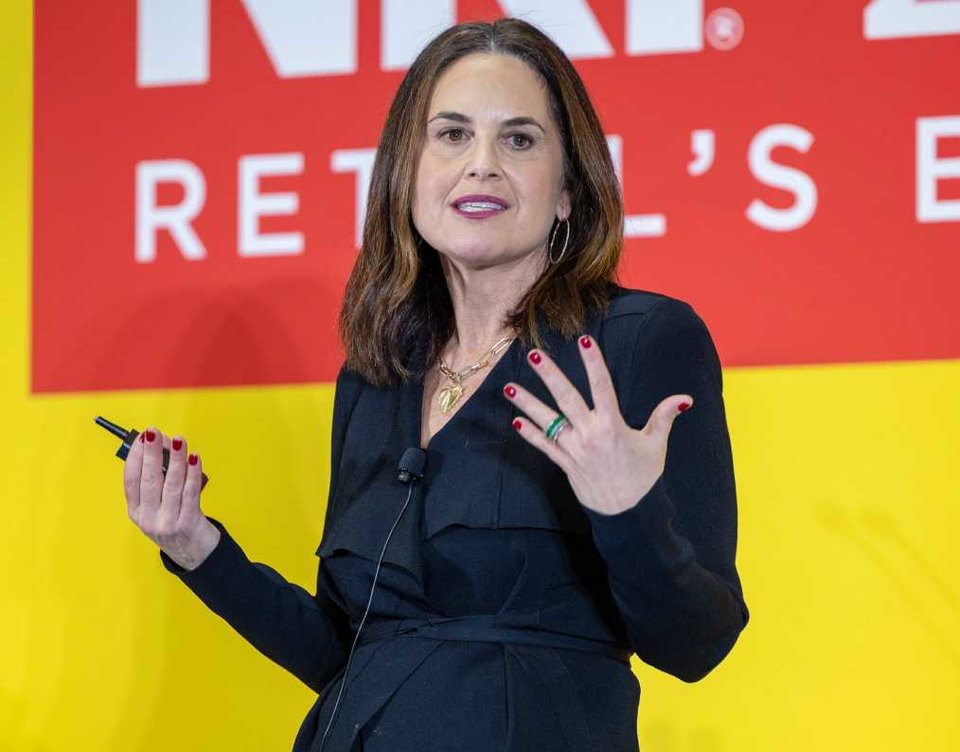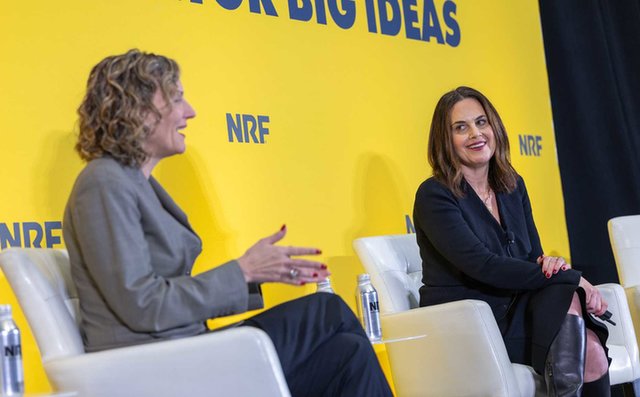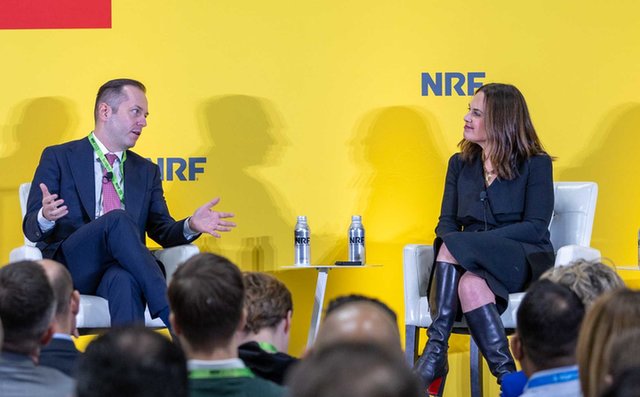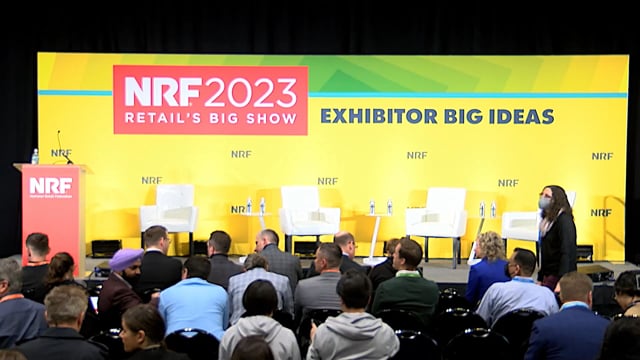
Resilient Retail. Achieve More with Microsoft Cloud for Retail
Produced by Microsoft
Shelley Bransten, Corporate Vice President, Global Retail & Consumer Goods Industries, Microsoft, discussed the need for "resilient retail" and how Microsoft is working with retailers to achieve this. "The past few years have taught us a great deal as we faced unprecedented economic, societal and technological change. Retail industry leaders have found that digital is what will make the difference between those that thrive and those that get left behind. In fact, retailers in every category will need to weave technology into the fabric of their business so they can do more with less – it’s what we call “Resilient Retail,” she said. Shelley went on to share the three characteristics of resilient retailers: excellent customer service, investing in the frontline, and supply chain resiliency.
Shelley also shared news of Microsoft's two new capabilities that make Microsoft Cloud for Retail even more powerful, which are focused on maximizing store operations and developing autonomous stores. The first is called Store Operations Assist, a solution for store productivity that is designed to increase front-line workers' productivity and collaboration. The second capability, Smart Store Analytics, is a collaboration between Microsoft and AiFI, the world’s most broadly deployed computer vision-powered autonomous store operator, which is designed to make autonomous AI-embedded retail as ubiquitous as Wi-Fi. It includes an autonomous store, bringing world-class e-commerce analytics into physical stores, and is built on the trust, scale, and security of the Microsoft Cloud.
Roxanne Flanagan, SVP, Chief Supply Chain Officer, Walgreens presented the supply chain transformation of Walgreens in response to the pandemic. Walgreens partnered with Blue Yonder to build an order management system for real-time inventory tracking, enabling curbside delivery and one-hour delivery in 9,000 stores. Blue Yonder is also helping Walgreens roll out a labor management system to make Walgreens a better place to work and improve productivity by giving team members the opportunity to earn incentive pay, team members and the company splitting the productivity savings 50/50. This incentive program helps create a better experience for the team members and leads to doing more with less costs, which is best for the company, the team member, and the customer. Walgreens is also focusing on being more agile, resilient, and flexible in their supply chain, looking for ways outside the box to drive transportation and distribution.
Tomasz Blicharski, Managing Director of Żabka Future and EVP of Żabka Group gave bird's-eye view on Żabka's autonomous stores enabled by AI, data, and digital capabilities. Żabka is the largest convenience store chain in Poland, operates more than 9,000 physical stores and is a leader in quick commerce and direct-to-consumer meals in Poland. The autonomous stores are an intermediary between their physical and digital businesses, offering customers the ability to shop on autopilot, pick up their purchased goods, and leave in under 50 seconds on average. Entry to the store is via credit card, debit card, digital wallet, or app, and a receipt is sent via SMS, phone, or app depending on the payment method. The technology used is camera-based and is provided by AiFi and Microsoft on the cloud. The camera-based technology also enables personalization and optimization of store operations, such as routine and procedures for team members who operate several stores. Tomasz believes that the future of retail requires both physical and digital checkpoints and an ecosystem to make the customer's life easier and free up their time.






